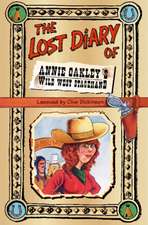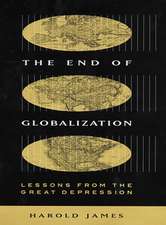You Don't Say: Modern American Inhibitions: Classics in Communication and Mass Culture Series
Autor Benjamin DeMotten Limba Engleză Paperback – 31 mar 2002
At the center of You Don't Say is the proposition that the present age of personal liberation has created as many inhibitions as it has abolished. Some of our new-found freedoms could be employed with a sharper sense of tact. And some freedoms we have lost are worth remembering-or even recovering. In the essays that comprise You Don't Say DeMott reflects on the use of language, how modern man has claimed to be free of repression though the opposite is true, and how people who object to certain types of language and prefer verbal ambiguity do so possibly to assert their moral dignity and intelligence. The book is full of sharp observations, witty commentary, and empathetic description of the contemporary social and cultural scene.
In an essay entitled "The Anatomy of Playboy," DeMott correlates the magazine's popularity with its reductionist tendencies: the world becomes reduced to the realities of sexual need and deprivation. In "The Passionate Mutes," the author reflects on the changing language of the greeting card throughout the years. "Dirty Words?" is a meditation on language itself, and on how mastery of the word was at one time a key to power. And in "Oyiemu-O?" DeMott considers the writing of "native" African and Indian authors in an age during which the colonialist viewpoint was considered authoritative. The author's new introduction discusses the essays in their historical context and how they are relevant to the present day, and describes how the book came into being.
"[A] book distinguished by its beauty as by its wisdom for-although we may feel the pressure of inhibition against admitting it-intellectual courage can be as beautiful as bodies swayed to music. The intelligence of hope can be as passionate as sexual hunger."-New York Times Book Review
Benjamin DeMott is an essayist, novelist, and journalist. He was professor of English at Amherst College, and a consultant and writer for National Education Television. He is the author of The Body's Cage, Hells & Benefits, a collection of essays, and Killer Woman Blues: Why Americans Can't Think Straight About Gender and Power.
| Toate formatele și edițiile | Preț | Express |
|---|---|---|
| Paperback (1) | 197.48 lei 6-8 săpt. | |
| Taylor & Francis – 31 mar 2002 | 197.48 lei 6-8 săpt. | |
| Hardback (1) | 461.03 lei 6-8 săpt. | |
| Taylor & Francis – 28 iun 2018 | 461.03 lei 6-8 săpt. |
Preț: 197.48 lei
Nou
Puncte Express: 296
Preț estimativ în valută:
37.79€ • 38.98$ • 31.53£
37.79€ • 38.98$ • 31.53£
Carte tipărită la comandă
Livrare economică 26 martie-09 aprilie
Preluare comenzi: 021 569.72.76
Specificații
ISBN-13: 9780765808516
ISBN-10: 076580851X
Pagini: 270
Dimensiuni: 152 x 229 x 18 mm
Greutate: 0.43 kg
Ediția:1
Editura: Taylor & Francis
Colecția Routledge
Seria Classics in Communication and Mass Culture Series
Locul publicării:Oxford, United Kingdom
ISBN-10: 076580851X
Pagini: 270
Dimensiuni: 152 x 229 x 18 mm
Greutate: 0.43 kg
Ediția:1
Editura: Taylor & Francis
Colecția Routledge
Seria Classics in Communication and Mass Culture Series
Locul publicării:Oxford, United Kingdom
Cuprins
The Anatomy of Playboy; The Passionate Mutes; Suspended Youth; Dirty Words?; Party Apolitics; America Absolved; Character of the Assassin; Project for Another Country; Oyiemu-O?; Glossing a Portuguese Diary; Pure Politics; The Uses of Anti-Americanism; Letter from the Classes; Statement and Struggle: A Note on Teaching Against the Environment; The Little Red Discount House
Descriere
In this era of political correctness, it is often impossible to say things as one would like















